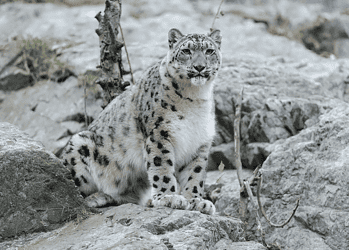Cigarette butts, one of the most common forms of pollution, significantly hamper plant growth. Both regular and menthol cigarette filters reduce plant growth and germination success, researchers write.

Cigarette butts have become nigh ubiquitous — they’re so widespread that one recent study found them to be the most abundant form of garbage in the oceans. More than 5.5 trillion cigarettes are manufactured globally every year with a plastic-based filter, made of cellulose acetate. It is estimated that around 4.5 trillion cigarette butts are littered every year, and this type of plastic takes decades to disintegrate.
But what happens after they’re littered?
Cigarette butts are not inert. They contain a myriad of chemicals from the tobacco which they can release into the environment. A previous study found that birds purposely bring cigarette butts into their nests because these chemicals can help keep ticks at bay — but the substances also have a negative effect.
In the new study, the team used a greenhouse experiment to assess the impact of discarded filters on two common and representative plants: Lolium perenne (perennial ryegrass) and Trifolium repens (white clover). They used a number of different scenarios (smoked and unsmoked cigarettes, regular or menthol), assessing their impact on the plants’ health.
After 21 days, the results were in, and the damage was visible. Shoot length and germination success were significantly reduced by exposure to any type of cigarette filter, and the damage was more substantial when the plants were exposed to filters from smoked regular cigarettes, as opposed to those which still had some leftover tobacco.

Although this is hardly surprising, this is the first study to assess the impact of cigarette butts on plants, says lead author Dannielle Green from Anglia Ruskin University (ARU), said:
“Ryegrass and white clover, the two species we tested, are important forage crops for livestock as well as being commonly found in urban green spaces. These plants support a wealth of biodiversity, even in city parks, and white clover is ecologically important for pollinators and nitrogen fixation.”
“We found they had a detrimental effect on the germination success and shoot length of both grass and clover, and reduced the root weight of clover by over half.”
The main takeaway of this study, researchers say, is to convince people that cigarette butts are indeed litter and they have a negative impact
“Dropping cigarette butts seems to be a socially acceptable form of littering and we need to raise awareness that the filters do not disappear and instead can cause serious damage to the environment.”
“Many smokers think cigarette butts quickly biodegrade and therefore don’t really consider them as litter. In reality, the filter is made out of a type of bioplastic that can take years, if not decades, to break down.”
The study was published in the journal Ecotoxicology and Environmental Safety.






